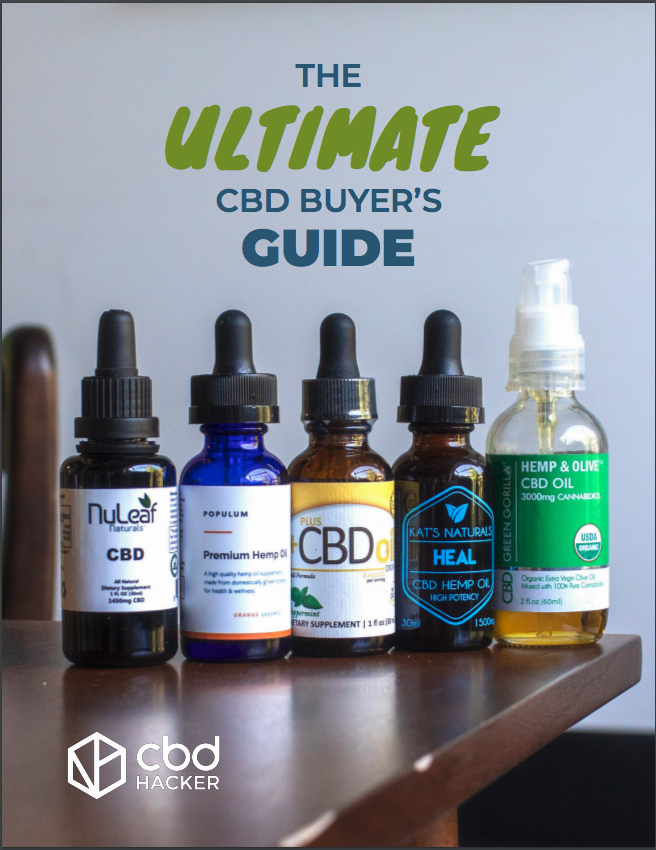It’s hardly big news that CBD doesn’t get you high. And we’ve known for a while that CBD can also offset THC’s psychoactivity. But new research out of the University of Western Ontario has shed some light on the molecular mechanisms at work when CBD interacts with THC in the brain.
The new research, published in the Journal of Neuroscience, found that rats dosed with THC alone showed more anxiety behaviors and were more sensitive to fear-based learning. That part may not seem terribly surprising, but the study did give researchers a clearer idea of what was happening in the brains of those rats.
Scientists found that THC-dosed rats had an overstimulated pathway in the hippocampus for a molecule called extracellular-signal regulated kinase (ERK).
On the other hand, rats dosed with both CBD and THC together acted more like the control rats, had normal levels of ERK, and exhibited fewer anxiety behaviors. Further, researchers found that CBD had no effect on the ERK pathway on its own.
According to Steven Laviolette, professor at Western’s Schulich School of Medicine:
“Our findings have important implications for prescribing cannabis and long-term cannabis use. For example, for individuals more prone to cannabis-related side-effects, it is critical to limit use to strains with high CBD and low THC content.”
This Week’s Top CBD Deals
NuLeaf Naturals
Discount: 20%
Code: cbdhacker
Pure Hemp Botanicals
Discount: 20%
Code: cbdhacker20
4 Corners Cannabis
Discount: 20%
Code: Hacker20
Populum
Discount: 15%
Code: Hacker15
Mission Farms
Discount: 20%
Code: cbdhacker
Joy Organics
Discount: 15%
Code: cbdhacker
In other science news, Dr. Raphael Mechoulam, a renowned professor of medicinal chemistry at the Hebrew University of Jerusalem recently announced that his team has created safe and stable synthetic acid (or “raw”) forms of THC and CBD.
These new synthetic cannabinoids are a major development in cannabis medicine. In their raw form, cannabis acids are highly potent but also highly unstable (outside of living plants).
Additional research is necessary to determine the safety and efficacy of the synthetic cannabinoids, but the medicinal potential is pretty exciting. Early clinical tests show results on par, or even exceeding, existing treatments for nausea and anxiety, without side effects.
Professor Mechoulam has a long history of cannabis research. In fact, he was among the team of researchers that first determined the chemical structure of CBD in the 1960s, garnering him the title “grandfather of cannabis research.”
Massachusetts, Rhode Island, Washington, and now Oregon have all put some kind of vape ban into effect in the wake of illnesses and deaths linked to vaping.
The temporary bans, which target either vaping products or the vape pens and cartridges themselves, are an attempt to get ahead of the illnesses and give researchers time to understand what is causing them.
So far, no one single culprit has yet to be identified as the main cause of illness, though vitamin E has been highlighted as a possibility.
But new findings published this week, coming from an analysis conducted by Colorado Green Lab, point in a different direction – to the inhalation of a toxic chemical that is used to fuse metals together. Silver solder, which is present in many cheap vape pens, causes a severe lung illness called Metal Fume Fever, previously suffered almost exclusively by professional welders.
The new theory supports a recent Mayo Clinic study of 17 lung tissue samples last week. That study found that all the injuries closely resembled severe chemical burns. These were similar to those caused by mustard gas, a biological weapon created during World War I.
Stay in the know
[caldera_form id=”CF5b05eba6de634″]
The Wisconsin Senate passed a new hemp bill this week that will bring the state’s hemp law into closer alignment with 2018 federal farm bill hemp regulations.
The bill, which makes changes intended to help farmers, hemp processors, retailers, and consumers, gives control of the state’s hemp program to Wisconsin’s Department of Agriculture, Trade and Consumer Protection.
Growing hemp has been legal in the state since 2017.
Politicians in South Dakota are pressing on with hemp legislation despite the opposition of Governor Kristi Noem. The Industrial Hemp Study Committee met on Monday to discuss hemp legislation for the first time since Noem’s September announcement that she would veto any hemp bill that might be passed in 2020.
The committee seems undeterred, though, and continues to write the new bill, building off the failed 2019 bill’s language. They have stated that they will not finalize the legislation until the USDA publishes its hemp program guidelines (which is expected to happen sometime this fall).
In order to override Noem’s expected veto, the bill will have to be passed by two-thirds of the senate.
More From CBD Hacker This Week
Poor sleep can have a huge impact on your health and happiness. Join us for an in-depth look at the science behind using CBD oil for sleep.
CBD Pure: Backed by the Industry’s Leading Guarantee
Want to try your CBD product before you commit? CBD Pure offers one of the most consumer-friendly satisfaction guarantees around.
The US Federal Trade Commission announced in September that it had sent out warning letters to four CBD companies that were using deceptive advertising on their websites.
At the time, the agency did not release the names of those companies, but a public records request posted this week has made the names of those companies, and the warning letters themselves, public. The companies that received the letters were:
- 4Bush Holdings, owner of magicgreenoildrops.com and firstclassherbalistcbd.com
- NuLife CBD Oils
- Ocanna
- Relievus
The flagged advertising included claims that CBD could cure ailments that ranged from autism to cancer and one website claimed CBD was comparable to Oxycontin for pain relief. The FTC can fine companies that make health claims unsubstantiated by clinical data.





